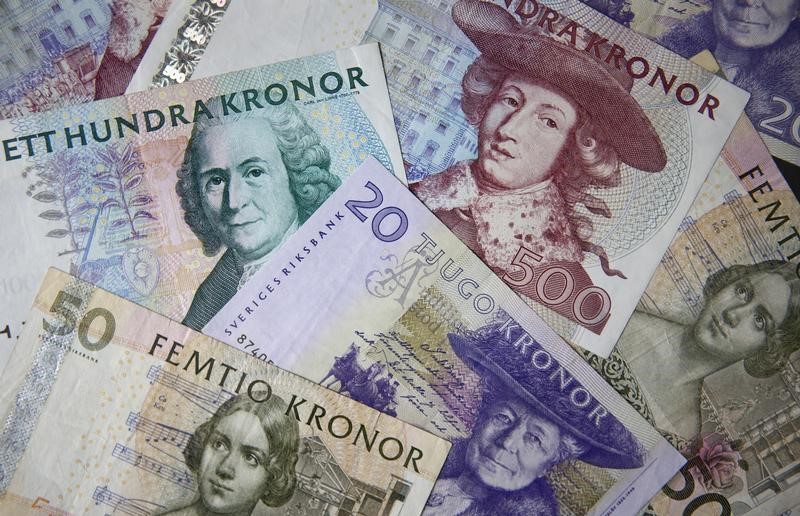By Simon Johnson and Daniel Dickson
STOCKHOLM (Reuters) - Sweden shocked markets on Thursday by introducing negative interest rates, launching bond purchases and saying it could take further steps to battle falling prices.
The central bank joins a list of those including the European Central Bank, the U.S. Federal Reserve and the Bank of England, to resort to unconventional monetary policy steps to confront an unusual combination of economic problems.
Unlike many other European countries, Sweden's economy is growing at a solid pace but even with that expansion, inflation is still way under the central bank's 2 percent target and some economists say Sweden risks a deflationary spiral.
The Riksbank said it cut its key repo rate to -0.1 percent from zero where it had been since October, a surprise after a majority of analysts in a Reuters poll had forecast no change. It also said it would buy bonds worth 10 billion Swedish crowns.
Global uncertainties including low oil prices, China's economic outlook and the impact of a massive bond buying scheme from the European Central Bank, have added to pressure on the central bank to take extra steps.
"Should this not be enough, we want to be very clear that we are ready to do more," said Central bank governor Stefan Ingves.
"If more is needed, we are ready to make monetary policy even more expansionary."
The central bank said this would mean further repo-rate cuts, pushing out future rate hikes and increasing the purchases of government bonds or loans to companies via banks.
"This is just one cut and a test-run of QE," Roger Josefsson, chief economist at Danske Markets said.
"The threshold for further downside deviations in inflation is extremely small and they are ready to do more."
Headline consumer prices fell or were flat on an annual basis in every month but one last year and the effect of lower oil prices has yet to be fully felt. Headline prices are expected to rise just 0.1 percent this year.
BOND BUYS
The Riksbank said it would "soon" make purchases of nominal government bonds with maturities from 1 year up to around 5 years for a sum of 10 billion Swedish crowns (1 billion pounds).
But with the ECB printing 60 billion euros a month in new money the Riksbank's much more limited programme may have little effect on bond yields - already at record lows.
"In terms of GDP, the mini-QE program amounts to about 0.25 percent," banking group Morgan Stanley said in a note. "Therefore, this measure should be seen more as a signal that the Riksbank is ready to do more and remain dovish for the foreseeable time."
Markets were caught on the hop by the extent of the Riksbank's action - the Swedish crown's trade weighted index fell to its lowest level since spring 2010 (TCW) - after the announcement.
The repo rate is seen remaining at the current level until underlying inflation is close to the Riksbank's 2 per cent target.
Four cuts in the last month have taken Denmark's main policy rate to -0.75 percent as it defends its currency peg to the euro.
